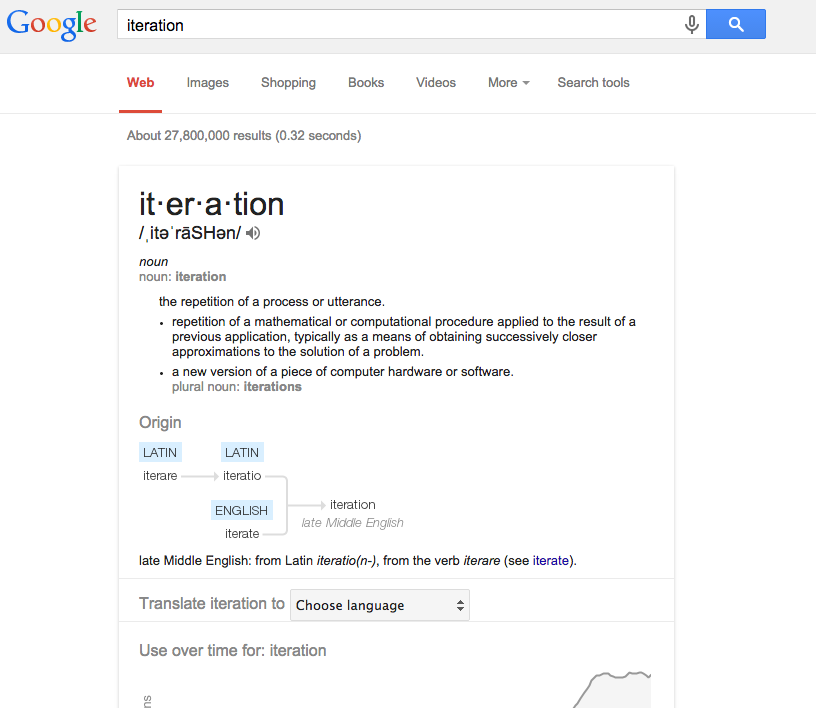I am going to follow and blog along with the DML Commons course on Design Research over the next few weeks. Coming from the discipline of English, Design Research is not a familiar concept to me. This academic year, I started a postdoc in the library that has introduced me to formal aspects of project planning and iterative development culture in software development. From observing and occasionally participating in the development processes (establishing scope, writing user stories, testing and accepting stories), I have gotten interested in how to translate some of the practices into teaching and research. (And even daily life. This post about “failing faster” has captured my imagination. I’m trying to wake up early to write before heading to work. I need to keep tracking 3 day iterations. How many alarm clocks will it take?)
So, iteration is a word that has only recently entered everyday usage in my vocabulary. Since “iterate” already has a sense of repetition embedded, now “reiterate” (“to do a second time, again”) evokes some fugal Godel-Escher-Bach-style repetitions in my mind.
I’m looking forward to getting more of a sense of what design research means, and how I might apply it to my postdoc project, as well as research and pedagogy more broadly.


Alan Levine (@cogdog)
The definition of iteration in the screen grab at the top perhaps suggests that the repetition is not an endless repeat, but perhaps (in programming parlance) has some sort of exit condition that is checked, and maybe acted upon.
Maybe re-iteration is at a different level, of stepping back from an iterative process and checking that agains some condition, to iterate on iterating? The meta-ness starts to get dizzy.
+many for the Godel-Escher-Bach reference, now looking for the dusty book on the shelf….
Anne Donlon
That’s a good point, @cogdog. Iteration is repetition toward a solution. And then reiterating is approaching that iterative process anew. That’s a nice explanation! Thank you!